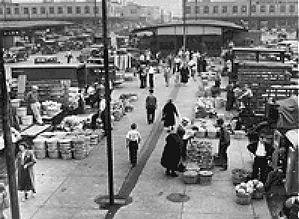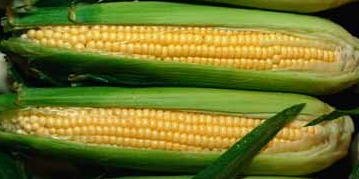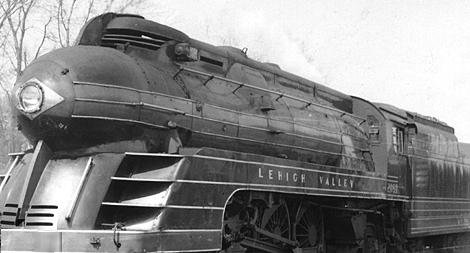|
Have a good sleep, a fine sleep, and a long sleep, and wake up feelin’ fine; and when you're five you can go to market. That's what Pa always said when he tucked me in. I called him 'Daddy' and, later, 'Pa' when I was too sophisticated for 'Daddy' and afraid of seeming too pretentious to call him 'Dad' and somehow I was afraid to ask something so simple as "what should I call you?" Pa was quiet; he didn't particularly invite questions, and never said much about his growing up. After eons of waiting, five-years-old finally came, and how exciting: market! Stumbling out at 3 am, but so excited to be getting up in the middle of the night, into the rattling old truck, and off into the night. Soon we were chugging along at a good clip of 35 or 40, my eyes wider open than ever during the day. Up ahead in dim headlights, for an hour's worth of miles, my private landscapes beheld scary, fascinating things. There's a huge round building, I'm thinking, and it turns into a hill; an archway we're going to go right thru turns into two telephone poles with a guy wire across. Every phantasm became unscary and quite OK — I could finally count on that, and really have fun with the world of misty darkness. Years later when I saw the Emerald City of Oz, I thought Hey, that's one of my nighttime things, for real, in the daytime! So, at the market, what's the first thing that farmers do? Get their stuff out of the truck and put it on the raised walk and hope that grocers come along to buy their eggs and cabbage for the day? No, they take their kid to Deco's, and they buy the paper to see how much to charge for their eggs that day, and the kid (that's me!) gets a hot chocolate and the biggest bestest donut that ever was! And we go back to the truck, when the sun was pretty soon gonna come up beyond the weeds over there (we had a stall on the end of the 300 walk, very handy), THEN we'd get our stuff out and put it on the walk. And wait for the mom-and-pop grocers to come along and buy a crate of eggs or three bushels of cabbage. Or, later in the season, six bags of corn. And glads. Mom loved flowers and one time we had a hundred pails of bunched glads in one truckload! Some of those pails held huge bunches with big blossoms, like you'd see at a wedding or funeral or something like that.
The corn — we had sorted and bagged it the day before. It's five dozen in a bag or box, counted out by two ears in each hand, two hands, makes four, counting to fifteen times makes your 60. We made bags of carefully-sorted firsts and seconds. And wormy corn, sold as wormy; it was perfectly good after you broke off the tip if it was a earworm. The borers were more trouble because they went straight into the middle of the ear and you didn't know whether you were cooking a worm in there or not — anyway, what difference does it make, just be careful not to find half a worm. At one time health inspectors would come around and kick people off the market if they found wormy ears of corn. We had no trouble with that, first because we called it guaranteed wormy and second, because we invented a better way to handle it: we'd eat the really bad ones ourselves; for the others we broke off the wormy tips, de-silked them and wrapped six of them in cellophane (a handy "triangular" number), and we sold those for a higher price than the firsts. Not bad, and not dishonest 'cause you see exactly what you're getting. Pa and Ma were sincere and honest — they never ever cheated anybody of anything. And besides, farming was a good and respectable way to live because the most important thing of all was that people needed to eat. Funny things sometimes happened at the market. Once Carl, the market manager, came by and said Frank (that's Pa) How do you spell your name? He was looking at Pa's plaque on our truck that says he has stall 390 and his name is Knolton (instead of Knowlton) and it's been there for months that way; so they had a good laugh. Carl was a fun guy to see; he always had a smile and something to say. One time he said that our sweetcorn was one of the four best lots of corn on the Buffalo market. I was real pleased and proud of that. The market was a good place to learn about money and your times's, like three baskets of something for 65 cents each is, let's see, 60 cents each would be a dollar and 70, no a dollar and 80 cents. But it's 5 cents more than that, each, so that makes it, what did I say, a dollar and 80 cents plus 5 and 5 and 5, that's a dollar and 95 cents; they give you two dollars and you give them back a nickel. But there's another thing: if they buy a number of things, they should get a little knocked off the total so, in this example, I would always say "three for a dollar and 80" or even "two for a dollar and a quarter." I was always doing that, Pa didn't mind, even though he pretty much did straight so-much-each unless there was some talking about it back and forth first. I think Pa quietly enjoyed seeing me learning about money and making up my own mind about things like that. One time a goofy mixup happened. There's Allen, he's from New York City, visiting the farm. Allen and I are left in charge of the stall when Pa goes off on an errand. Now try to keep track of this, I'll make up names to keep the story straight. Along comes Mrs. Sleepy and she wants to buy a bunch of glads for 75 cents. She gives us a five dollar bill and we don't have enough ones. We tell her to wait while we get change, and Allen goes off to the hot dog wagon to change the five. Meanwhile 17-year-old John has given his 8-year-old brother Junior some money and told him to go over to our stall and buy some flowers for their mom. So Junior comes over and sees Mrs. Sleepy standing absent mindedly by the flowers, holding her hand out to the side waiting for her change and Junior puts his money in her hand, thinking she's the lady selling flowers. I think, if I'm thinking anything at all, that they're all connected somehow and I don't pay much attention. She takes her "change" and walks away, with her own bunch of flowers, and poor Junior stands there dumbfounded. In a little while, John comes to find what's keeping Junior and Junior says a lady took his money and left. What?? Off they run to catch the thief. Allen comes back with the change and nobody but me is there. Anyway, they find her, it all works out, everybody finds out who's who and what's what. Another time, another friend Dave and I are at the market and in the next stall is Johnny Green and he sells hundreds of bags of potatoes. So, with nothing better to do, Dave and I climb into Johnny's truck, OK with him, but we're rearranging the bags of potatoes to make a deep hideout with bags piled high all around. And it comes time for Johnny to count his remaining potatoes because he needs to have enough for deliveries on his way home. And he sees that it's no longer so many piles of so many bags each, and doesn't know how much he's got because we have so messed up his system. Not so good. Anyway, we were real sorry that we mucked it up for him. But we were all friends, no lasting damage done. Johnny once invited our whole family to visit us at Silver Lake and gave us a ride in his super neat inboard motor boat!! And there was one bitter cold day, in the winter, not many people on the market so we crowded in with the other trucks on the 400 walk, near the office building. And to have some fun, we found this heavy radiator in the building, not connected to any steam or hot water pipes. As a joke we (Pa was one of "us") wobble-walked this heavy radiator out to the middle of the walk and there we stood, gloves off, holding our hands over the ice-cold radiator, and rubbing them and pretending that we were just so glad to have a little heat on such a bitter day. And other people came by and thought what a great thing! And they warmed their hands too, and I don't know to this day: were we making fun of them, or were they joining in our joke? We were all smiling, that I remember for sure.
Another escapade boded my future as a satirist, or as a capitalist. Across the ring road, from our end-of-walk stall, lay a huge desolate field of giant weeds — among them were sunflowers that a friend and I though would nicely augment our glads and other flowers for sale. Pick them we did, and tied them in bunches, and put them in pails. And we sold some, at a profit of 25 or 50 cents! Now, how to think about this: Had we stolen someone else's seemingly neglected flowers? Had we made fools of our unobservant customers who could have stepped across and picked their own stupid flowers for free? Or had we provided, to the comfy-rich, a service so they could avoid 30 steps and a couple minor scratches? Unresolved, the issue still tugs gently at me. The day drags on, people come and buy or don't, and we have something to eat from the lunch wagon. Canadian bacon sandwiches, or the world's longest hot dog with a roll half a foot long and the hot dog hanging six inches out at each end. No, maybe it was a foot long, and the dog hung out a foot on each end. Anyway, it was the world's longest for sure, I do remember that. Those, like the donuts I mentioned, were just yum-yum. After a while it's maybe ten in the morning and things are winding down and most of our stuff is sold. And then that always-exciting thing happens, I keep looking for it up on a high embankment way beyond the weed field. And finally, There It Is! It's the Black Diamond, fantastic streamlined engine zooming and fast-puffing along, pulling maybe ten, anyway lots of, black passenger cars, with red and white stripes along the whole length of the train — somebody said it's red and white for Cornell, which is where Ma and Pa went to college — that's at Ithaca, on the Lehigh Valley's route from Buffalo to New York. For a maybe minute you watch it go by, far enough away that you can hardly hear it, which only adds to the greased magic. And then you take a big breath and say Wow! Someday, I hoped, I would ride on that glorious train, and look down at this market as it goes by.
And, would you believe it, that someday did come!!! I did just exactly that, I rode in that train and looked and looked for the market and, and ... There It Was! For maybe five or ten seconds I could see the Clinton-Bailey market and trucks and people there, going by in the distance out there on the right — it was really standing still, the train was moving, you know what I mean. So we pack and head for home, with four bushels of over-ripe peaches that Pa bought that we all are going to keep the good parts of, and peal and slice them into those glass jars with rubber rings and clamps. After you pull them out of the boiling water with special hooks and let them cool, and try to pull the rubber out to be sure it's sealed, you put them on a shelf in the cellar and eat those peaches in the winter. And they're good, those parts that we saved that weren't too mushy. And they're sweet, I think there was sugar put in with them. (You understand, of course, that not all of these things happened in my first year of going to market. I've mixed together lots of times from maybe eight years of going, now and then, to market with Pa. It was always an adventure, and the older I got, the more grown-up kinds of things I could do like serious selling of our stuff, or errands like going for those hot dogs.) On the way home, I'm so tired, and I fall asleep. Pa goes on driving, I don't know how he can get up in the morning at three and still be awake to drive home. Sometimes when things are real busy, it's market every other day, get ready on the days between. Sometimes, when things are really busy, it's the hired help getting stuff ready on every day and Pa going to market every day. Just for a while. That's how farming is. I should say how it was, on a 44-acre farm. Sometimes lots to do. And then there are special times when we sat on the front porch and enjoyed the long, soft rain on the corn across the road. What a glorious rain! Another two weeks without rain and we would have been in real trouble. Years later, I'm seventeen and just graduated from high school. All by myself, I drive a truckload of corn in to a commission house across from the market, and unload it and leave a note saying who it's from. I'm graduating, not just from high school. The grownups used to say something about a writes of passage. I don't quite understand the expression but I'm thinking that just maybe, standing in for my dad and writing "From Frank Knowlton," was one of those writes for me. |



